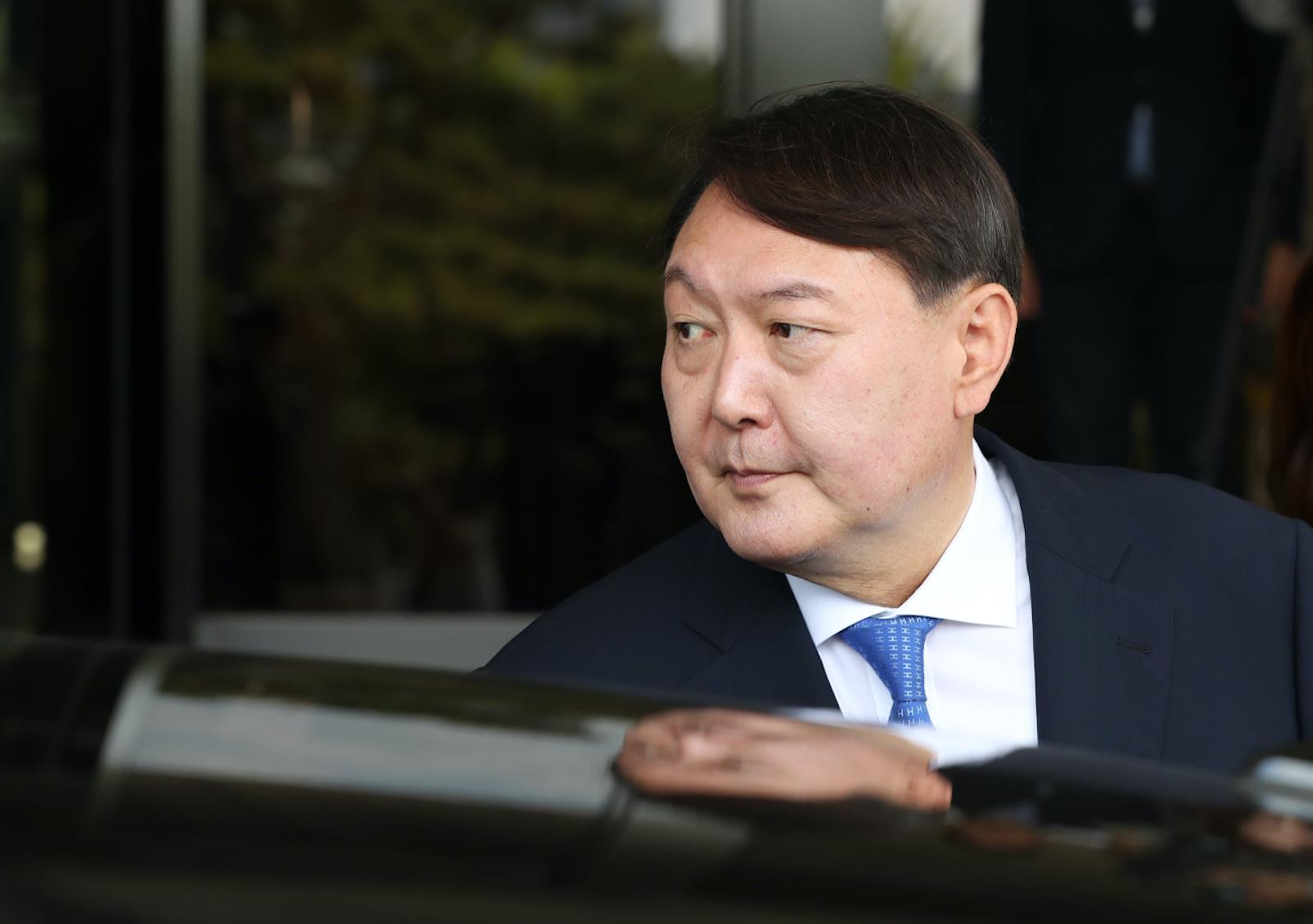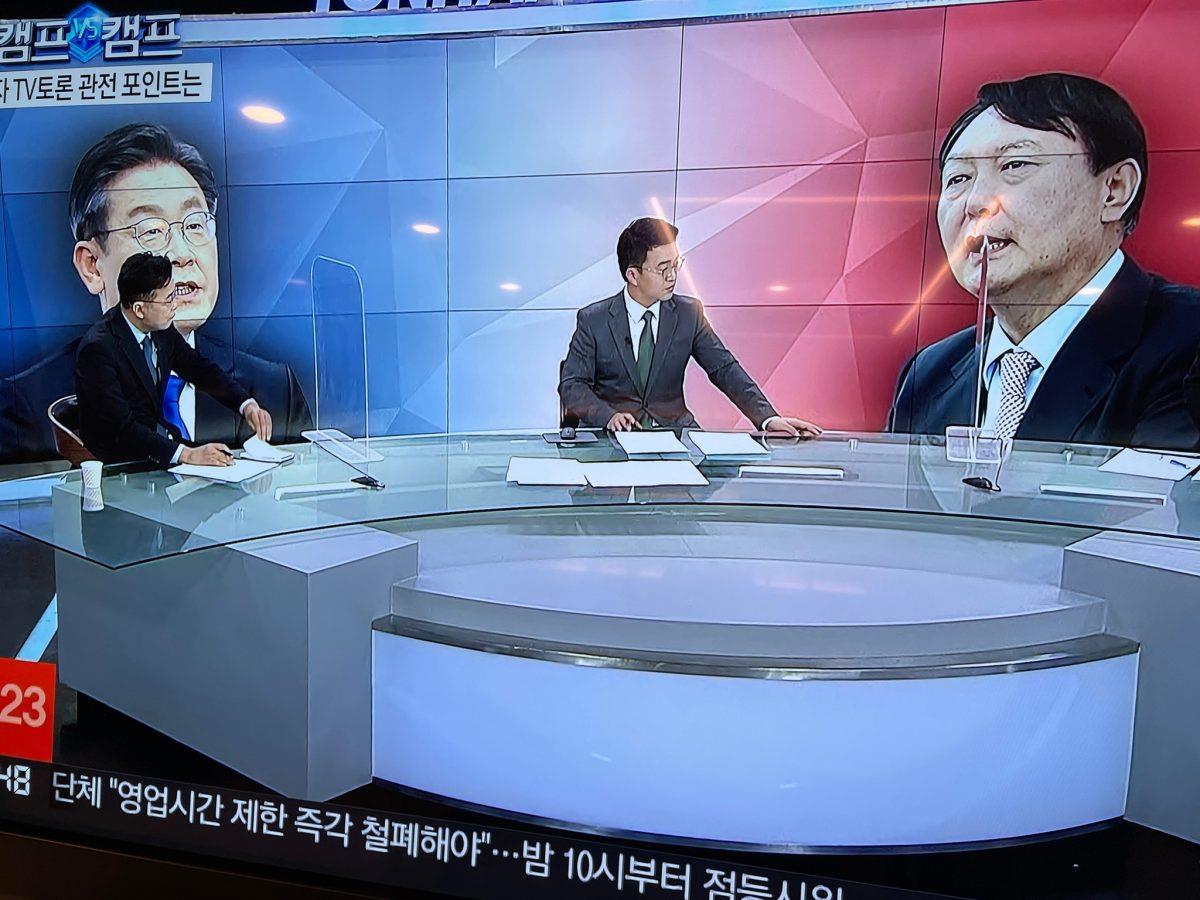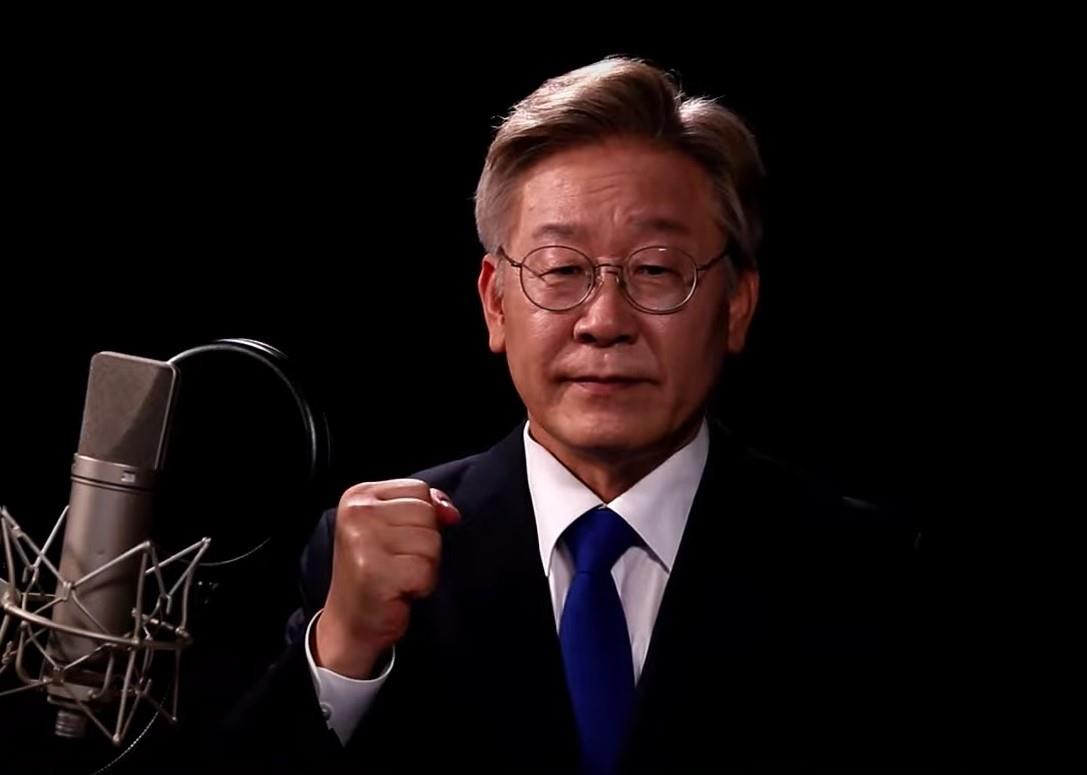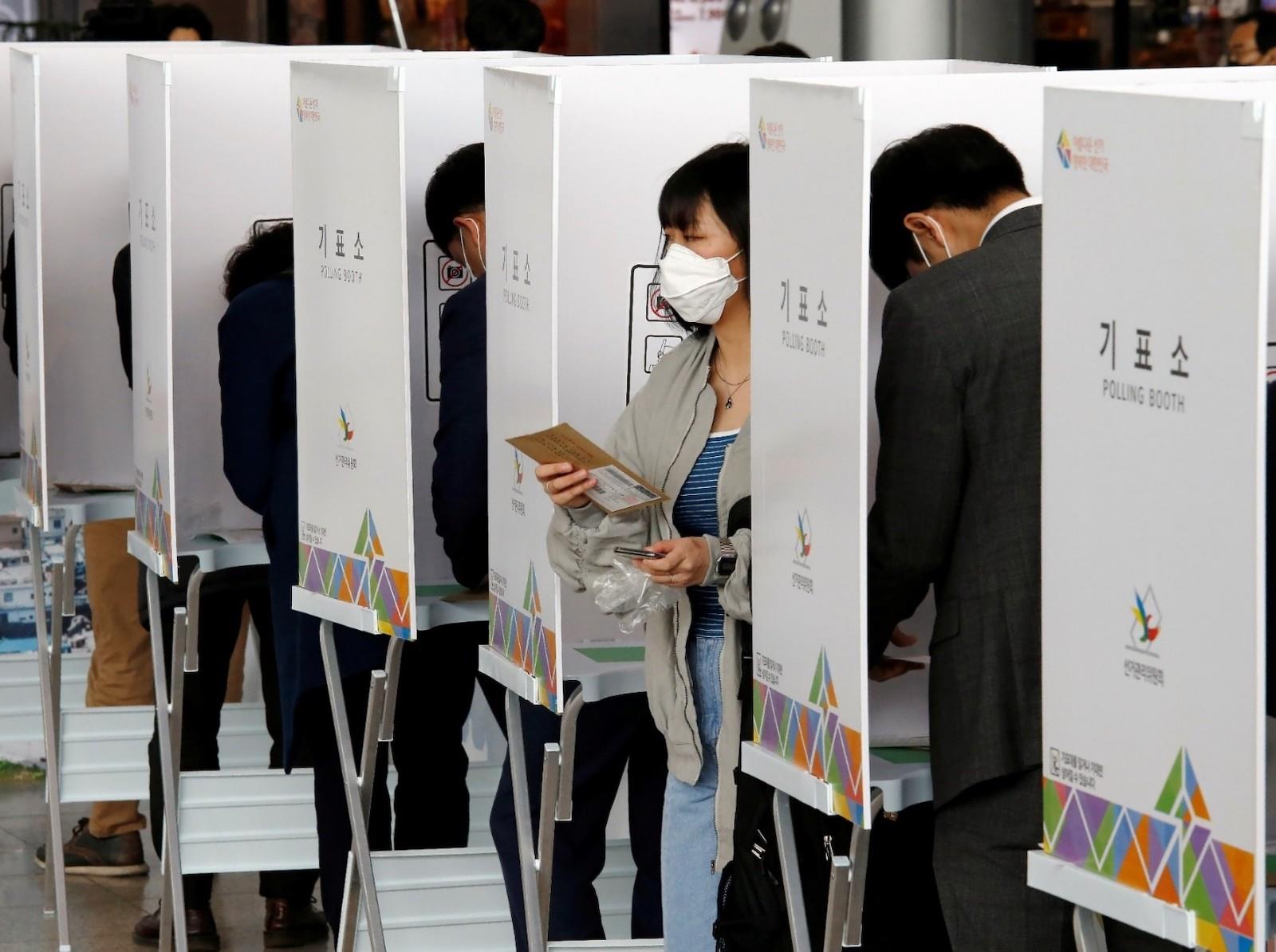(MENAFN- Asia Times)
SEOUL – Koreans went to the polls today in what may just be the most ferociously fought election since the country democratized in 1987.
In this hothouse atmosphere, indications are that, despite a raging pandemic, citizens are storming voting booths: Voter turnout was 68.1% as of 3:00 PM.
Results are expected in the early hours of Thursday.
On the surface, South Korea provides fecund soil for sensible debate. The challenges facing the world's 10th largest economy demand smart, far-sighted policy responses.
Domestically: Korea's population is fast-silvering; it is confronted by the multiple issues of a maturing, polarized economy suffering slowing growth; and it is rent by emotive debates over economic and demographic inequalities.
Globally: Korea is being tugged in opposite directions by China and the United States; lives under the gun of North Korea; and has a stormy relationship with neighbor Japan.
Yet, reflecting a depressing trend seen in other democracies in recent years, much campaigning has been dominated by personalities rather than on policies. And focus has hardly been on the candidates' finer qualities.
As a result, the battle has been widely framed on social media as a gutter fight between“a thug” and“a fool.”
Never before has so much mud been slung, so widely and so forcefully, as ruling party candidate Lee Jae-myung , 57 went mano-a-mano against opposition hopeful Yoon Seok-youl , 61.
The leftist Lee of the Democratic Party of Korea, or DPK, is a former lawyer and local politician. The rightist Yoon of the People Power Party, or PPP, is a former chief prosecutor and political neophyte.

Former prosecutor Yoon Seok-youl is leading South Korea's right wing into the March 2022 presidential election. Photo: Facebook
Amid the hurly-burly of campaigning, allegations of, corruption, bullying and even suspicious deaths have been hurled against Lee – the“thug.” Ditto, allegations of inexperience, shamanistic beliefs and dubious medical practices have been hurled at Yoon – the“fool.”
Both men's wives have also been dragged through the mud.
So how toxic has campaigning been?
Korean politics have always followed“Big Boys'” rules. After changes of administration, former leaders have been handled with extreme prejudice: Of the country's living ex-presidents, one is in jail serving 15 years for corruption. The other – penniless after fines and asset seizures – was released last December after serving almost four years via presidential pardon.
This merciless tradition may now expand from disempowered ex-leaders to failed wannabe leaders. Speculation has it that today's loser could end up behind bars after the new administration takes office in May.
Odds against Lee As of last week, the election had been on a knife-edge, with Yoon marginally ahead in most, but not all, polls.
Yoon's fortunes improved further when third-party independent Ahn Cheol-soo threw his support behind him. Though polls had, by then, been stopped due to electoral rules, many expected the Ahn factor to be decisive.
Another blow to Lee is the negative environment surrounding Koreans as they head to polls.
A professional election analyst told foreign correspondents last month that today's race was less a vote on issues, personalities or even regional affiliations – a perennial dynamic in Korean politics – and more a plebiscite on the Moon Jae-in administration. Moon is constitutionally restricted to a single, five-year term – and his potential successor, Lee, is unlikely to benefit from any current feel-good effect.
Arguably the biggest achievement of the Moon government was its adroit handling of the Covid-19 pandemic in its first two years. A wide-testing, high-tech, non-lockdown strategy kept deaths down, society ticking over and the economy rocking.
Now, that achievement lies largely in tatters.
Omicron is spiking off all charts. Today, this country of 52 million registered a record high of 342,446 new infections . These numbers outpace both the UK which suffered a record daily high of 218,297 cases among a population of 67 million, and Japan which suffered a record high of 104,345 cases among a population of 126 million.
Though Korea boasts far lower death rates than those countries, its Covid-weary population is trapped in a social distancing limbo at a time when other developed nations are leaving the pandemic behind. Small businesses have been especially hard hit by curfews.
Even so, the election is far from a done deal.

TV newscasters discuss the upcoming presidential election between leading candidates Lee Jae-myung, left, and Yoon Seok-youl, right. Photo: Asia Times / Andrew Salmon Big picture issues Koreans have much to ponder when it comes to politics.
The national economy remains largely two-tier, dominated by conglomerates at the top, Mom 'n Pops at the bottom and little in between, though the Moon administration has successfully incubated an entrepreneurial venture boom.
Their economy has proven both resilient and flexible as it takes on the innovation challenges presented by the Fourth Industrial Revolution. But it is off-whack.
The highly competitive, export-centric manufacturing sector generates great macro numbers, but far outweighs a mediocre service sector. And issues simmer on the micro side.
In an era of offshoring and automation, Korea is not generating enough of the white-collar jobs its over-educated populace demands. This has led to belief in rampant wealth, generational and gender inequalities. Amid them, younger Koreans are neither marrying nor mating.
There are widespread calls for more social security and more public housing. Others fret that today's youth has abandoned the“economic warrior” work habits and go-get-'em attitude of prior generations.
Foreign policy challenges are dizzying.
Seoul balances on a razor edge between leading trade partner Beijing and strategic ally Washington. It must balance emotive public animosity toward Japan – incubated by education, media and civic groups over colonial history – with pragmatic real-politick.
There is a typical left-right divide in the politics of the two candidates. (Asia Times will dissect the president elect's policy portfolio tomorrow, after the winner is declared.) But the policy-personality line has blurred as mud-slinging placed focus on character.

Don't be fooled by the genteel exterior: Lee Jae-myung is a political player with old-school working-class cred. Image: YouTube 'Thug vs fool' The DPK's Lee, despite his slick appearance, is seen by supporters as a working-class hero who defied humble origins to become a lawyer and politician. In the latter position, as both a mayor and provincial governor, he won kudos for effective social welfare programs and charismatic presence.
Yoon is seen by his champions as an elite player who, as a prosecutor, took down former President Park Geun-hye in a massive abuse of power and corruption scandal. But, in a show of principle, he then battled his boss – Park's political nemesis, Moon – in a battle to defend the prosecution against presidential attempts to tone down its power.
Those are the pros. Weeks of electoral gutter fighting have placed more emphasis on the cons.
Rightists consider Lee a villain for his shady past while a local politician – there are allegations of a real estate scam and suspicions over silent or disappeared witnesses – and his abusive and aggressive behaviors, which have been outed in leaked tapes.
Leftists consider Yoon a“fool” for multiple gaffes and political inexperience: in some debates, he was clearly un-briefed. His apparent belief in odd practices, such as anal acupuncture and shamanism – he was photographed with the ideogram for“king” on his palm, recalling disgraced ex-President Park, who also allegedly had spiritualist dalliances – has provided fodder for his opponents.
Hence, a“lesser of two evils” dynamic is in play. Even so, the main players – though there are 12 candidates running, the race is essentially two-way – have their champions.
Kim Sung-nam, a college instructor in his early 50s, voted Lee, citing his experience and flexibility.
“Because of his hard-scrabble life and experience as an administrator, he is rather pragmatic,” said Kim, adding that Lee is less ideological than many party members. As a local rather than national-level politician,“Lee is considered something of an outsider within the ranks of the DPK.”
Lee also boasts survivability.
“Because of his underclass background, he seems to have a lot of staying power,” Kim said.“He has a Teflon skin: A lot of scandals that would have toppled other candidates have a way of bouncing off of him.”
As for Yoon,“he is not an idiot,” Kim conceded.“But he has spent his entire life within one service [the prosecution] and his ability to think about various issues is not flexible.”
Kim reckoned Korea's key geopolitical fix – its shaky position between China and the US – will require pliability.
“The next president is going to have to do some very deft maneuvering,” Kim said.“But the Yoon camp's line is very pro-US and very anti-China, never mind the fact that Korea is reliant upon China for a quarter of its trade.”
Yang Sun-mook, 63 is a former international relations committee chair of the DPK who has changed his colors. Today, he voted Yoon.
“He has been consistent in his beliefs and duties to uphold the rule of law,” Yang said, further citing Yoon's determination to investigate high-level fraud in the face of political pressures.
Yoon's sound behavior is diametrically opposed by Lee's, Yang reckons.
“Though he was not indicted, Lee is allegedly the administrator responsible in a big real-estate scam that went wrong,” Yang said.“He was not honest when he made public statements. I don't think he should serve as a public servant with that kind of dishonesty.”
More widely, Yang reckons the DPK has not lived up to expectations.

South Korea's presidential campaign has been characterized by mud-slinging. Image: Facebook
It has suffered scandals and made an unholy mess of housing policy, infuriating both landlords, who have suffered soaring tax, and wannabe buyers, who have seen metropolitan home prices soar.
“There were all kinds of financial frauds by aides in the Blue House and a state-owned company was heavily invested in housing fraud,” Yang said.“That shocked a lot of people who turned their back on this government. Public sentiment was totally betrayed.”
While the cut-and-thrust of the campaign may be a fine show of free democratic practice, the shockwaves of ill-will generated could prove deleterious for Korea's polity over the longer term. Rumors abound of possible prosecution probes into the loser.
“I have seen loads of talk that they are fighting not just for the Blue House, but to stay out of jail,” said David Tizzard, who teaches Korean Studies at Seoul Womens' University.“There could be serious ramifications for not coming out on top. That is not a good thing.”
MENAFN09032022000159011032ID1103818581